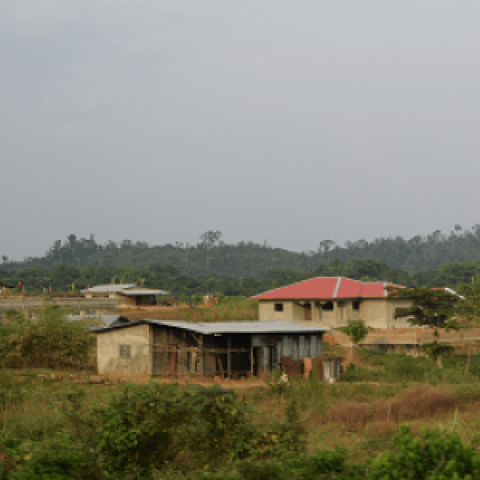Does Community Leadership Matter in Implementing Land Formalization Policies?
Stephan Schmidt
Associate Professor and Director of Graduate Studies, City and Regional Planning, Cornell University
Edmund Zakayo
PhD student, Open University, Dar es Salaam, Tanzania
Rapid urbanization and the inability of governments to provide sufficient services and infrastructure has lent an urgency to the importance of property titling and tenure formalization in African cities. The promotion such policies has now enjoyed several decades as the land policy of choice for international institutions, development agencies and national governments. As such, there exist many studies that have examined the impact of property titling and tenure formalization on a whole range of social, economic, political, and even cultural outcomes (Payne, Durand-Lasserve, and Rakodi, 2007) Many of these studies assume that property holders do in fact apply for title deed once their property has been surveyed. Fewer studies have looked into the processes that precede land formalization. However, the demand for property title is influenced by a number of different factors including the characteristics of the local property market and economy, the legal or bureaucratic context, whether residents perceive that the benefits of formalization will be forthcoming, and finally the political environment. Onerous or burdensome administrative procedures or political instability impact the demand for title deeds.
Can good governance, oversight, and implementation of a land formalization policy overcome some of these hurdles? What role does community leadership, outreach, and public participation have in increasing title deed application rates and thereby the success of land formalization policies? In a recent study published in Habitat International, we studied three neighborhoods in Moshi, Tanzania with similar demographic profiles that were impacted by the same exogenous land formalization process but differ primarily in the leadership and administration of that process: Miembeni, Kwa Komba, and Dhobi. These neighborhoods took part in a property formalization program organized by the Sustainable Moshi program that was funded by DANIDA, the Danish development agency, in 2008. In Miembeni, local community leaders held informational meetings to raise awareness of the formalization process, demonstrated financial transparency, and encouraged involvement from land holders and public participation to better establish trust. Meanwhile, community leaders in Kwa Komba and Dhobi did not hold meetings and did not involves the community in the implementation of the land formalization program, nor were they transparent or accountable in managing the process.
Based on a survey of 547 households across the three neighborhoods, we found that Miembeni respondents were more likely to be aware that the formalization process had occurred compared with those in Dhobi and Kwa komba. Miembeni respondents were also more likely to be aware of their plot number. Because of their otherwise similar demographics, these statistically significant differences can be attributed to the role of community leaders in the respective neighborhoods. In addition, we collected information on the number of applications for title deed since the program was implemented from each of the three neighborhoods based on records available at the Moshi town planning office. At the time of the study, these applications were at various stages in the process. Overall, we found that only 14% of respondents across the three neighborhoods had acquired title deeds. Of those who had applied for title deed, approximately 12% did not proceed beyond the application stage for a number of reasons, and only about 3% ended up receiving an offer. However, the study revealed that there were quite a range of results based on neighborhood. In Miembeni, 50% of households had applied for title deed and were somewhere in the process, compared with only 26% in Dhobi and a mere 6% in Kwa komba (see Figure 1 below).
Miembeni had higher rated of title deed acquisition due to greater public participation and better community leadership during the land formalization process compared with the other neighborhoods. However, even in Miembeni many of the applications for title deed have not advanced much beyond the initial stage. Respondents cited a number of explanations why, despite the compelling reasons, they did not either begin or complete the application process (see Figure 2 below). One of the most common reason was the financial burden (38% of respondents across the three neighborhoods), coupled with the unexpected increase in the cost of the title deeds. Approximately 20% of the respondent found the process too laborious and bureaucratic, as they had to make multiple trips to a number of offices for approval.
Approximately 16% of the respondents reported that although they had initiated the process and submitted an application, they had not proceeded to advance their application to next stages or even followed up with the planning office. Some lost hope or became discouraged due to the lack of communication or lengthy delay. Other cases were the result of the death of the head of household who was responsible for the application and was knowledgeable of the process. The study findings show about 10% of the respondents across the three neighborhoods did not proceed because their plots were combined during the cadastral survey. As a result, many of these combined plot scenarios never advanced beyond the application phase as landholders were reticent to pay additional fess, taxes, and other costs associated with title deed acquisition.
Residents in Miembeni were more aware and more knowledgeable of the formalization process and its outcomes, largely due to efforts by community leaders to enhance outreach, visibility, and accessibility of the land formalization process. This led to higher rates of title deed application and, ultimately, increased property ownership rates in Miembeni compared with the other formalized neighborhoods. However, persistent hurdles to deed application existed for all the neighborhoods, regardless of the action of community leaders.
The results of this study suggest that local leadership and community level planning can have significant, though limited, outcomes. Structural challenges still exist to prevent the full impact and outcomes promised by land formalization and titling programs to be realized. Nevertheless, it does suggest that linking formalization policies with certain governance requirements may prove fruitful. Incorporating conditions that require a degree of open and transparent governance may increase the chances of success and the impact of a formalization program.
This article is based on Schmidt, S. and Zakayo, E. (2018) Land formalization and local leadership in Moshi, Tanzania, Habitat International, 74, 18-26
Work Cited
Payne, G., Durand-Lasserve, A. and Rakodi, C. (2007) Social and economic impacts of land titling programmes in urban and peri-urban areas: A short review of the literature, Presented at the World Bank Urban Research Symposium, Washington DC



